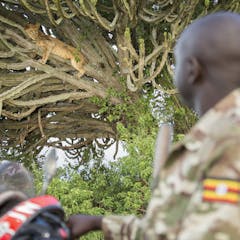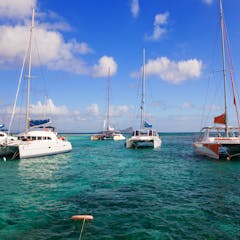
Articles sur Africa tourism
Ensemble des articles

The world’s largest women’s sporting event is being hosted in Africa for the first time.

The Covid-19 pandemic will long be remembered for the lockdowns it imposed and the millions of lives it stole. A recent Unesco report reveals that it has also took a large toll on world heritage sites.

Many feel the money could be better spent developing local sport.

The Covid-19 pandemic has the potential to make tourism more sustainable in Africa, improving the lives of local communities rather than just catering to international visitors.

A grand new memorial park walks a fine line - between teaching about slavery and becoming a tourist trap.

Political and social instability in the country, as seen in frequent mass protests and xenophobia, threaten the flow of African tourists.

The non-stop four-day dance party is always controversial – this year because of threats of terrorist attacks.

The reduction of foreign tourism is an opportunity for Africans to experience many of the continent’s premier parks at a discount.

Africa’s public and private protected areas took a massive blow from the collapse in tourism because of the pandemic. Tourism is a key source of funding for managing protected areas.

Trips to their home countries by migrant youth help them create and update their relationship with the countries their families come from.

In a rare series of interviews, the late Ghanaian leader spoke of how the country’s slave trade was revisited as a vehicle for economic development.

The economic, social and conservation reasons why hunting remains relevant in southern Africa.

Political ethics and sports don’t match well. The recent deal between Rwanda and Arsenal is potentially a case in point.

In the era of neoliberal capitalism, both the ideology of Pan-Africanism and the legacy of the Trans-Atlantic slave trade have become marketable commodities.

Africa has a number of excellent scuba diving sites, but these must be maintained sustainably to keep attracting different divers.

Mauritius’ experience proves that making more entertainment offerings available is key to driving tourism for island destinations.

Safaris are a major tourist attraction for those travelling to Africa - and visitors are spoiled for choice on the continent.

Hunting remains a controversial pastime. But that hasn’t stopped it attracting hunters wanting to track Africa’s wide array of wild animals.

There are several relatively unknown eco-friendly locations in Africa that adventure-seeking tourists would find delightful.

Africa has some wonderful beaches. A serious traveller should visit at least one of them once in a lifetime.
